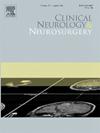Evaluation of resilience in pediatric well-controlled epilepsy patients
IF 1.8
4区 医学
Q3 CLINICAL NEUROLOGY
引用次数: 0
Abstract
Objective
The main objective of this study was to assess the resilience scores of children with well-controlled epilepsy and their healthy counterparts using the Connor-Davidson Resilience Scale (CD-RISC). The secondary objective was to investigate the potential association between the age at onset, seizure type, and anti-seizure medication, and resilience in pediatric patients with well-controlled epilepsy.
Methods
This cross-sectional case-control study was performed on children aged 10–18 in a Training and Research Hospital Pediatric Neurology and Pediatric Outpatient Clinic. The study encompassed a total of 103 participants, comprising 57 children diagnosed with epilepsy and 46 healthy counterparts. Resilience and its individual components, namely hardiness, flexibility, coping, purpose, optimism, regulation of emotion and cognition, and self-efficacy, were assessed utilizing the Connor-Davidson Resilience Scale (CD-RISC).
Results
There was no statistically significant difference observed in the total CD-RISC scores between children with epilepsy (61.0 ± 17.7) and the healthy cohort (60.8 ± 14.4) (p: 0.97). Furthermore, a comprehensive analysis revealed no significant correlations between the CD-RISC total score and its individual component scores, taking into consideration various factors such as age, gender, age at onset, last seizure date, seizure type, EEG findings, and brain MRI findings.
Conclusion
Regardless of age, gender, age at onset, seizure type and anti-seizure medication, in well-controlled epilepsy, resilience is similar to that of healthy children. New studies are needed to evaluate resilience in children with epilepsy who have uncontrolled seizures and receive polytherapy.
求助全文
约1分钟内获得全文
求助全文
来源期刊

Clinical Neurology and Neurosurgery
医学-临床神经学
CiteScore
3.70
自引率
5.30%
发文量
358
审稿时长
46 days
期刊介绍:
Clinical Neurology and Neurosurgery is devoted to publishing papers and reports on the clinical aspects of neurology and neurosurgery. It is an international forum for papers of high scientific standard that are of interest to Neurologists and Neurosurgeons world-wide.
 求助内容:
求助内容: 应助结果提醒方式:
应助结果提醒方式:


